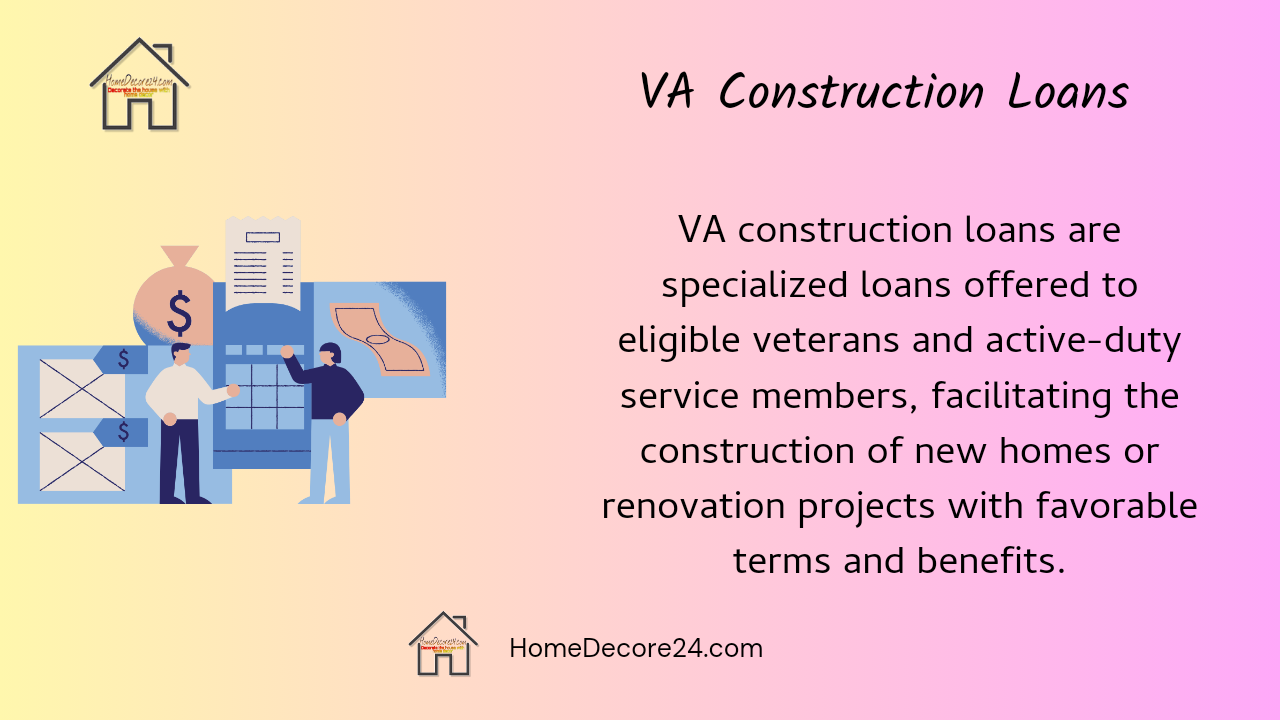
In the realm of mortgage financing, homebuyers often encounter an array of options designed to suit their unique needs and financial situations. One such option is the FHA Jumbo loan, a hybrid of two popular mortgage types – FHA loans and Jumbo loans. FHA (Federal Housing Administration) loans are government-backed loans known for their lenient credit requirements and lower down payment options, while Jumbo loans are used to finance high-value properties that surpass conforming loan limits.
The FHA Jumbo loan merges aspects of both, offering the potential for lower down payments on larger home purchases. However, like any financial decision, it’s crucial to weigh the pros and cons before deciding if this loan type is suitable for your circumstances.
What Is FHA Jumbo Loan?
FHA jumbo loans are mortgages insured by the Federal Housing Administration (FHA) for amounts that exceed conventional loan limits. They provide financing for high-value properties, accommodating borrowers seeking larger loan amounts within FHA guidelines.
Read More: Navigating Home Equity Loan Closing Costs
What is an FHA Jumbo loan?
An FHA Jumbo loan is a specialized type of mortgage that blends elements from two distinct loan categories: FHA loans and Jumbo loans. Each of these loan types serves different purposes within the realm of home financing, and the FHA Jumbo loan aims to bridge the gap between them to accommodate homebuyers seeking to purchase higher-priced properties while benefiting from certain advantages of FHA-backed loans.
FHA Loans: FHA loans are backed by the Federal Housing Administration, a government agency. They are designed to help individuals with moderate-to-lower income levels and credit scores secure financing for their home purchases. FHA loans are known for their more lenient credit requirements and the option for a lower down payment, often as low as 3.5% of the home’s purchase price. These loans are generally capped at a certain loan limit that varies by location.
Jumbo Loans: Jumbo loans, on the other hand, are used to finance properties that exceed the conforming loan limits set by government-sponsored enterprises like Fannie Mae and Freddie Mac. These loans are often necessary for high-value properties in expensive housing markets. However, Jumbo loans typically require larger down payments and stricter credit criteria compared to FHA loans.
FHA Jumbo Loans: An FHA Jumbo loan blends these two loan types to provide an option for homebuyers looking to purchase properties that surpass the standard conforming loan limits but still want to benefit from some of the features of FHA loans. This loan type allows borrowers to secure a larger loan amount with a lower down payment than what would be required for a traditional Jumbo loan. While the specific terms and eligibility criteria can vary, the general idea is to make it more feasible for borrowers to enter the high-end housing market without shouldering an exorbitantly large down payment.
It’s important to note that FHA Jumbo loans are not offered by all lenders and may have unique qualification requirements. As with any mortgage decision, potential borrowers should carefully consider their financial situation, long-term plans, and consult with mortgage professionals to determine if an FHA Jumbo loan aligns with their needs and objectives.
Read More: Can You Deduct Your Home Equity Loan Interest?
FHA Jumbo loan requirements
Certainly, here are the key requirements for an FHA Jumbo loan:
- Loan Limits: The property’s purchase price must exceed the standard conforming loan limits set by Fannie Mae and Freddie Mac for the area.
- Credit Score: Borrowers typically need a minimum credit score of around 680 or higher to qualify for an FHA Jumbo loan.
- Down Payment: While the down payment requirement is lower than that of traditional Jumbo loans, it still varies but can be as low as 10% of the purchase price.
- Debt-to-Income Ratio (DTI): Lenders usually require a DTI ratio of around 43% or lower, indicating your ability to manage monthly mortgage payments alongside other debts.
- Reserves: Some lenders may require borrowers to have several months’ worth of mortgage payments in reserves as a safety net.
- Mortgage Insurance: Borrowers might need to pay private mortgage insurance (PMI) or similar insurance premiums due to the higher loan amount and potential higher risk.
- Property Type: Eligible properties include primary residences, single-family homes, and some multi-unit properties (up to four units).
- Occupancy: Borrowers are generally required to occupy the property as their primary residence.
- Documentation: Expect to provide thorough documentation of your income, employment history, assets, and other financial details.
- Appraisal: An appraisal of the property is crucial to determine its value and ensure it meets minimum property standards.
It’s essential to remember that FHA Jumbo loan requirements can vary between lenders and can be subject to change. Prospective borrowers should work closely with a knowledgeable mortgage professional to understand the specific eligibility criteria and ensure they meet all the necessary requirements for this type of loan.
FHA Jumbo loan limits
FHA Jumbo loan limits exceed standard FHA loan limits, accommodating higher-priced properties. These limits vary by location and are influenced by local housing market conditions.
FHA Jumbo loan interest rates
FHA Jumbo loan interest rates are influenced by market conditions, borrower creditworthiness, and economic factors. Rates can vary and may be competitive, yet borrowers should compare offers from lenders for the best terms.
Pros and cons of FHA Jumbo loans
Pros of FHA Jumbo Loans
Lower Down Payment: FHA Jumbo loans typically require a lower down payment compared to traditional Jumbo loans, making high-priced properties more accessible.
Favorable Terms: Borrowers might enjoy competitive interest rates and terms, potentially saving money over the life of the loan.
Easier Qualification: The credit score and debt-to-income requirements might be more lenient than those of standard Jumbo loans, helping a broader range of borrowers qualify.
FHA Backing: The government backing provides a level of security for lenders, which could result in more favorable terms for borrowers.
Larger Loan Amounts: Borrowers can secure larger loan amounts than with standard FHA loans, catering to the needs of those purchasing higher-value homes.
Cons of FHA Jumbo Loans
Higher Loan Amounts: While the down payment is lower, the overall loan amount is higher, potentially leading to larger monthly payments.
Mortgage Insurance: Borrowers may need to pay private mortgage insurance (PMI) due to the higher loan amount, adding to the overall cost.
Credit Requirements: While more lenient than traditional Jumbo loans, credit score requirements might still be higher than those of standard FHA loans.
Property Limitations: Eligible properties are typically limited to primary residences and certain multi-unit properties, excluding some investment opportunities.
Complexity: The combination of FHA and Jumbo elements can make the loan process more intricate, requiring borrowers to navigate specific requirements.
Choosing an FHA Jumbo loan involves weighing these pros and cons against personal financial goals. Consulting with mortgage professionals and comparing options can help make an informed decision.
Read More: Is Student Loan Worth it?
FAQ’s
What is purpose of a Jumbo loan?
The purpose of a Jumbo loan is to provide financing for high-value properties that exceed the conforming loan limits set by government-sponsored entities, enabling borrowers to purchase luxury or higher-priced homes.
What is considered a Jumbo loan?
A Jumbo loan is a mortgage exceeding the conforming loan limits set by agencies like Fannie Mae and Freddie Mac. It’s designed to fund high-value properties, often found in expensive real estate markets.
What is the difference between normal loan and Jumbo loan?
The main difference between a normal loan and a Jumbo loan lies in loan size. A normal loan adheres to conforming loan limits set by agencies like Fannie Mae and Freddie Mac, while a Jumbo loan surpasses these limits, enabling financing for higher-priced properties typically found in costlier housing markets.
YouTube Video
Bottom Line
The FHA Jumbo loan presents an intriguing solution for homebuyers seeking to purchase higher-priced properties with a smaller down payment than what might be required with a traditional Jumbo loan. Its combination of FHA-backed benefits and access to larger loan amounts can make it an appealing option, especially for those with strong credit profiles.
However, potential applicants must carefully evaluate their financial standing and long-term goals. Consulting with mortgage professionals, thoroughly understanding the loan’s terms, and comparing it to other available options will empower homebuyers to make an informed decision. As the housing market and lending landscape continue to evolve, arming oneself with knowledge remains paramount in making the best choice for a secure and fulfilling homeownership journey.







